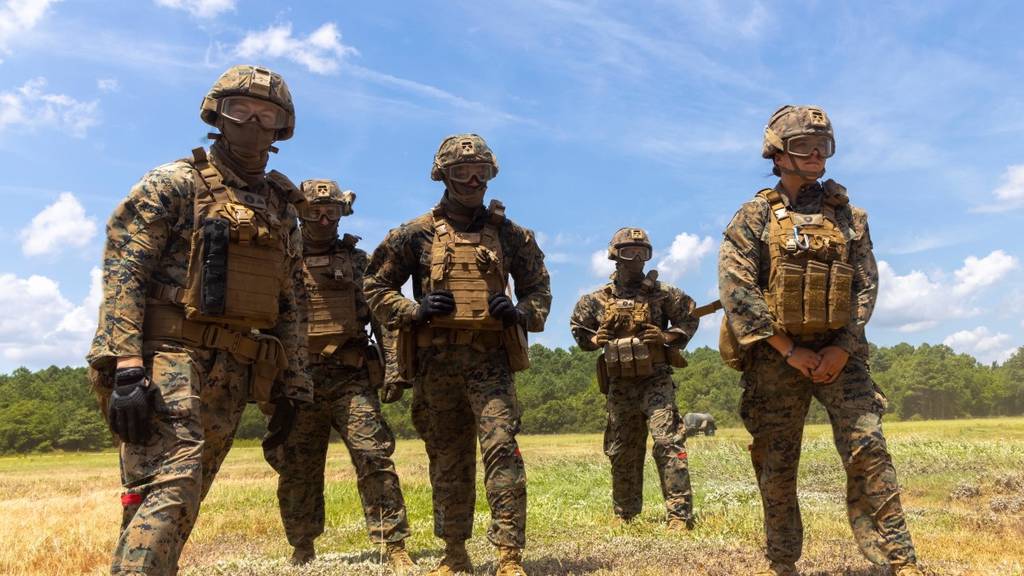The Marine Corps is rethinking how it approaches logistics. To do that, it’s also making changes to how it trains its people who handle logistics.
In its recently released Installations and Logistics 2030 strategy report, the Corps pushes for a more modern logistics system that could supply and sustain Marines even in a conflict with a technologically sophisticated adversary like the Chinese military.
One of the service’s new warfighting concepts is called stand-in forces: small units of Marines that are constantly positioned in contested areas. But getting those forces the fuel, equipment, food and services they need isn’t simple.
“We have been spoiled by two decades of conducting strategic and operational logistics in a permissive environment,” Lt. Gen. Edward Banta, deputy commandant for installations and logistics, said in prepared remarks accompanying the report.
To make contested logistics work smoothly — a complex task that could involve 3D-printed repair parts, drones and machine-learning systems — the Marine Corps says it needs its logistics personnel to be up to the task.
The Corps is exploring having more jack-of-all-trades logistics Marines who can perform multiple tasks as part of a small group of Marines, according to the report. That could mean combining two different military occupational specialties into one.
For instance, the Corps is considering merging the machinist and welder into a single “fabricator” military occupational specialty.
The service also plans to expand its educational offerings in logistics. It has tasked Training and Education Command with examining whether it provides enough coursework on logistics at its professional military education academies, like the Expeditionary Warfare School.
But professional Marine logistics personnel, whether uniformed or civilian, aren’t the only ones who will have to brush up on contested logistics.
Marines at Infantry Training Battalion and The Basic School will also learn about, and get evaluated on, aspects of logistics, according to the report. The Marine Corps wants its advanced expeditionary logistics operations course to have openings for military professionals who don’t primarily work in logistics, as well as those from other branches and nations.
But the report doesn’t provide specifics on all the ways the Marine Corps will train its future logistics personnel, because those details aren’t yet fleshed out. Instead, it calls for Training and Education Command to think through over the next several months exactly how to update logistics training.
Irene Loewenson is a staff reporter for Marine Corps Times. She joined Military Times as an editorial fellow in August 2022. She is a graduate of Williams College, where she was the editor-in-chief of the student newspaper.








